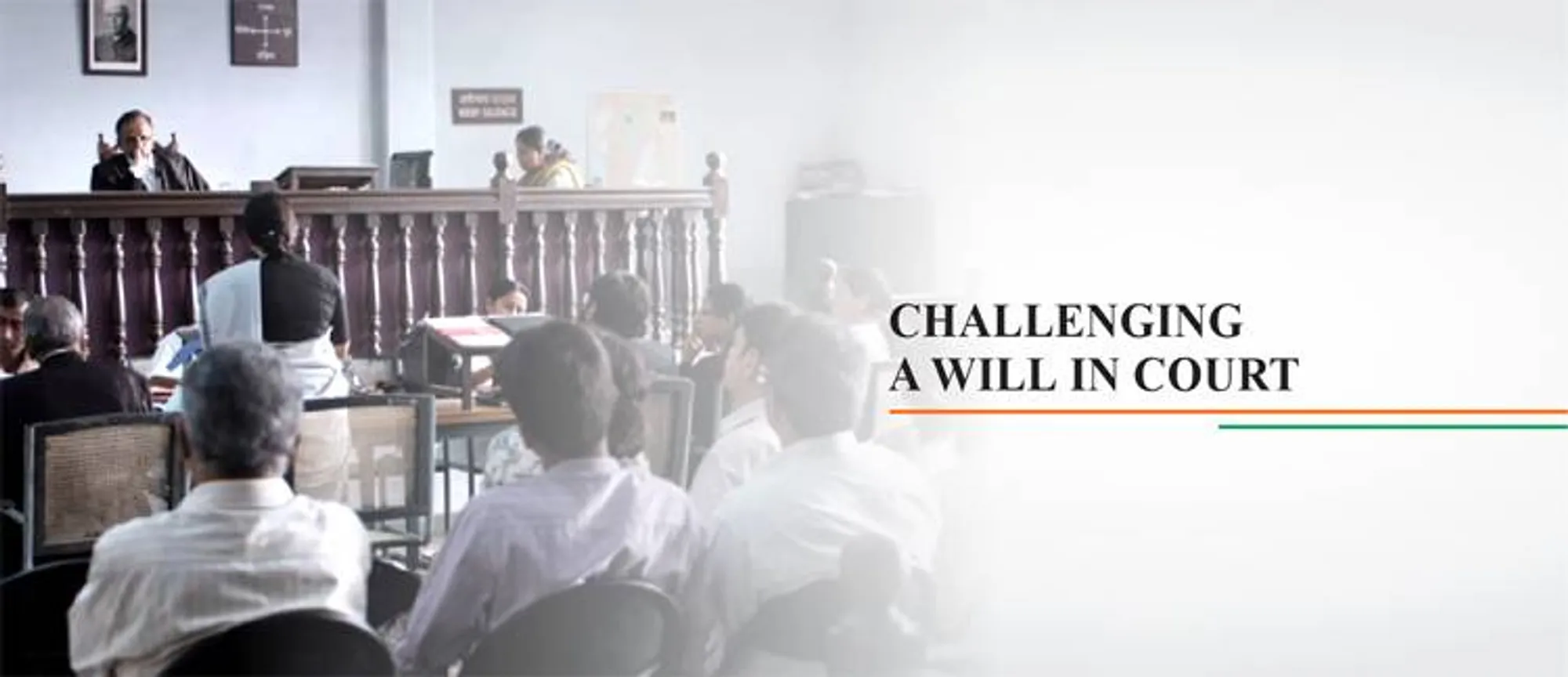A person who makes a Will (the testator) can decide to leave their assets to whomever they wish when they die. It is typically very difficult to challenge a will.
In Savithri and others Vs. Karthyayani Amma and others, the Honourable Apex Court held that the natural heirs have either been excluded or a lesser share has been given to them, by itself without anything more, cannot be held to be suspicious circumstances.
The validity of that Will can be challenged on any of the following grounds: –
Lack of due execution: – A Will must be in writing and signed by the testator (or signed by someone else in the testator’s presence and as instructed by the testator) in the presence of two witnesses, who must also sign the Will in the presence of the testator.
Lack of testamentary intention/capacity: – The testator has to be capable at the time that the Will was executed of deciding to make a Will and deciding to leave his assets in the way set out in the Will. If he was unable to make those decisions for himself because of an impairment of or disturbance in the functioning in his mind or brain (whether because of mental illness or under the influence of alcohol, drugs or medication) he would not have had sufficient capacity to make a valid Will. More specifically, the person must understand:
- The extent and value of the property;
- Who he or she is expected to provide for and who the beneficiaries of the will are;
- The disposition he or she is making and what a will means; and
- How these elements relate in order to form a distribution of property.
Undue Influence, Fraud, Mistake, or Other Factors: – A challenge of undue influence means the decedent did not make the will of free choice, but solely due to the improper influence of another person. This usually involves someone manipulating a vulnerable person into leaving all or much of the property to the manipulator.
A will can be challenged for fraud, such as when pages have been inserted after the decedent signed the will or the decedent’s signature is forged. If the will was not executed properly, with only one witness signature when two are required, for example, the will can be challenged as invalid.
In Jaswant Kaur Vs. Amrit Kaur and others the Apex Court held that a shaky signature, a feeble mind, an unfair and unjust disposition of property, the propounder himself taking a leading part in the making of the will under which he receives a substantial benefit and such other circumstances raise suspicion about the execution of the Will.

